How AI Is Transforming the CX Agent Role in 2025
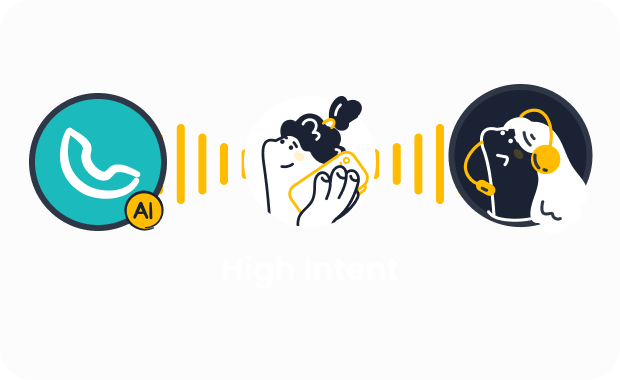
AI has redefined the CX agent role in 2025, driving a rapid transformation in customer experience. Nearly 98% of contact centers now use artificial intelligence, and 83% of leaders believe AI enables true 24/7 omnichannel support. The urgency for CX leaders to adapt is clear, as companies like Sobot deliver advanced AI solutions that optimize both efficiency and satisfaction. Sobot AI and the Sobot call center platform empower agents to balance automation with the human touch, ensuring every customer interaction feels personal and effective.
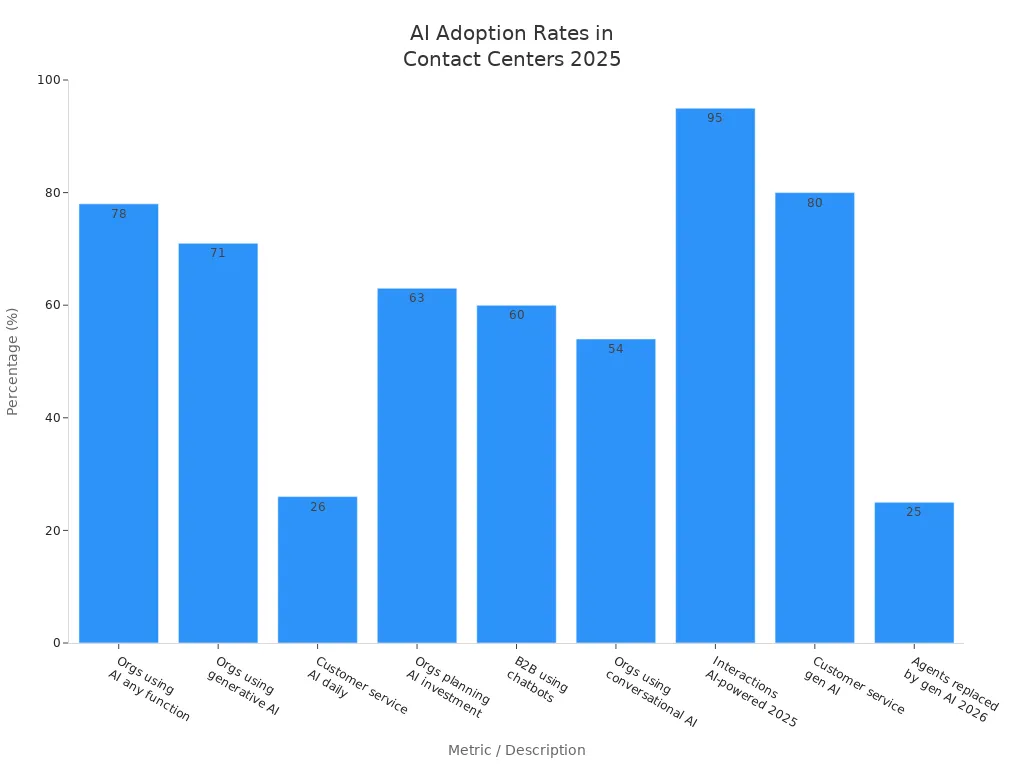
CX Agent Role Evolution
Shift to AI-Driven Tasks
The CX agent role has experienced a dramatic transformation as AI agents now handle most routine customer interactions. By 2025, AI manages 95% of all customer inquiries, allowing agents to focus on tasks that require human judgment. AI-powered chatbots and virtual assistants use emotional intelligence to recognize and respond to customer emotions, creating more human-like experiences. Companies such as Samsung and Apple have adopted AI agents that adapt responses based on customer tone, which increases satisfaction and loyalty.
Agents now oversee AI systems, monitor automated workflows, and intervene when complex or sensitive issues arise. Sobot’s AI-driven service platform exemplifies this shift, automating identification and verification while providing seamless handoffs to human agents. This approach reduces average response times by 35% and boosts first-contact resolution rates by 25% (source). The transformation enables agents to manage exceptions and maintain the human touch in emotionally charged situations.
Tip: AI agents free up human agents to focus on high-value interactions, making customer experience more efficient and personalized.
New Responsibilities in CX
CX agents now require advanced soft skills and technical proficiency. As AI agents automate basic cases, agents must develop abilities in active listening, empathy, and conflict resolution. Their responsibilities extend to customer success and sales, demanding strong communication and relationship-building skills. Agents also act as automation supervisors, optimizing AI performance and ensuring alignment with business goals.
A table below summarizes the new skill sets for CX agents:
| Role/Skill Set | Description |
|---|---|
| AI Agents | Automate routine tasks and multi-turn conversations. |
| Human-in-the-loop Agents | Fine-tune AI in real time and intervene in workflows. |
| Automation Supervisors | Manage AI quality and performance. |
| Relationship Managers | Handle complex, emotionally nuanced inquiries. |
| Subject Matter Experts | Resolve cases requiring deep expertise. |
| New AI-related Roles | Support AI systems as data scientists and automation specialists. |
Sobot’s unified workspace and AI copilots help agents respond quickly and accurately to customer needs. Agents now collaborate with AI agents, leveraging insights and context to deliver faster resolutions. This transformation elevates the CX agent role, making it essential for agents to balance technology with empathy and ethical decision-making.
AI in CX: Key Changes
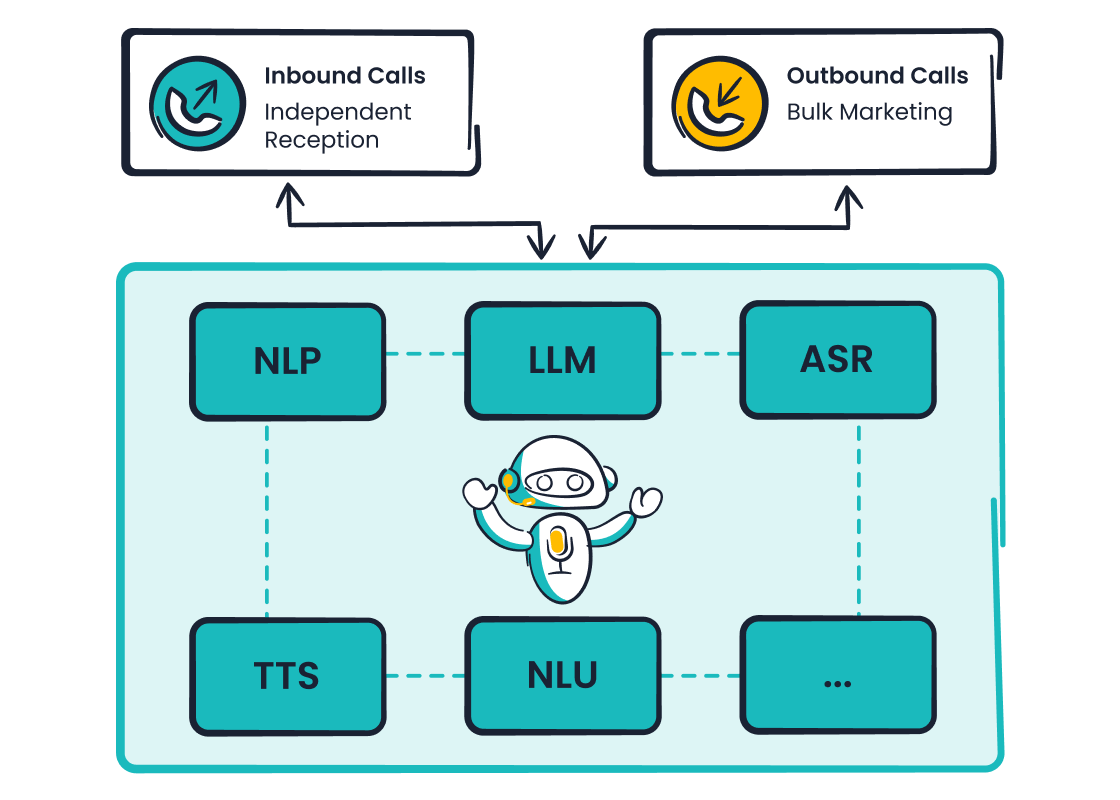
Automation in Customer Experience
AI in CX has brought a new era of efficiency and scale to customer experience operations. By 2025, AI agents handle up to 95% of customer interactions in leading contact centers, transforming how businesses deliver support and service. AI automates routine tasks, manages context-aware query resolution, and enables customers to solve issues independently through enhanced self-service options. This shift allows companies to provide 24/7 support without human burnout, ensuring that customers always receive timely assistance.
Sobot’s Voicebot stands out in this landscape by automating over 90% of interactions, offering multilingual support, and integrating seamlessly with existing CRM systems. The Voicebot uses advanced speech recognition and natural language processing to understand and respond to customers in multiple languages, making it possible to deliver superior customer experience across global markets. The platform’s no-code template setting and visual flow builder allow businesses to deploy AI-powered customer support quickly and efficiently.
AI agents now act as brand ambassadors, delivering consistent and personalized interactions at scale. They free human agents from repetitive tasks, allowing them to focus on complex and emotionally nuanced issues.
Key changes driven by AI in CX include:
- Automation of routine tasks and multi-turn conversations
- Enhanced self-service options for customers
- 24/7 availability and instant support
- Cost reduction and improved ROI through optimized workflows
- Seamless omnichannel engagement across chat, email, voice, and social media
- Proactive problem solving using predictive analytics
- Compliance with data privacy regulations
The impact of automation is clear in the results achieved by Sobot’s clients. For example, OPPO, a global leader in smart devices, integrated Sobot’s AI-powered chatbot and marketing solutions to overcome data fragmentation and manage high volumes of inquiries. After implementation, OPPO achieved an 83% chatbot resolution rate and a 57% increase in repurchase rate. The seamless integration of Sobot’s omnichannel solution improved customer satisfaction, engagement, and loyalty, demonstrating the power of AI in transforming customer experience (source).
Real-Time Agent Assist
AI in CX has also revolutionized the way human agents work by providing real-time agent assist technologies. These tools use AI to deliver instant access to knowledge base articles, scripts, and customer data during live interactions. Agents receive live prompts, compliance alerts, and sentiment analysis, which help them respond faster and more accurately.
Sobot’s AI platform empowers agents with copilots that generate recommended replies, summarize conversations, and provide real-time insights into customer sentiment. This support reduces response times, improves accuracy, and ensures consistent service across all channels. New agents benefit from shorter onboarding periods, as real-time coaching and feedback accelerate their learning curve.
Some of the most significant benefits of real-time agent assist include:
- Faster response times and reduced customer wait times
- Consistent and reliable service across multiple channels
- Improved response accuracy and reduced errors
- Real-time insights into customer sentiment and escalation risks
- Shorter training and onboarding periods for new agents
- Live compliance alerts to minimize regulatory risks
- Identification of upsell and cross-sell opportunities
Note: Real-time agent assist not only boosts agent productivity but also enhances the overall customer experience by ensuring that every interaction is handled with empathy and precision.
AI agents, supported by real-time assist tools, enable businesses to scale their operations without sacrificing quality. Sobot’s unified workspace integrates these capabilities, allowing agents to deliver superior customer experience while maintaining operational efficiency.
Hyper-Personalization
Hyper-personalization has become a defining feature of AI in CX. AI agents analyze customer history, preferences, and behavior to deliver tailored experiences that drive satisfaction and loyalty. Personalization goes beyond addressing customers by name; it involves understanding their needs, anticipating issues, and offering relevant solutions in real time.
Sobot’s AI platform leverages advanced analytics and machine learning to provide hyper-personalized interactions across all touchpoints. The system delivers product recommendations, targeted promotions, and proactive support based on individual customer profiles. This level of personalization increases engagement, reduces churn, and boosts customer satisfaction scores.
A table below highlights the impact of AI-driven personalization on customer satisfaction:
| Metric / Case Study | Description | Impact on Customer Satisfaction |
|---|---|---|
| AI-driven chatbots | Personalized assistance through chatbots | Up to 50% increase in satisfaction |
| Personalization in CX | Tailored experiences and recommendations | 30% increase in satisfaction |
| AI personalization reducing churn | Stronger attachment to the brand | 28% reduction in churn |
| Starbucks AI-personalized rewards | Targeted rewards and communications | Higher engagement and repeat purchases |
| Netflix recommendation engine | Hyper-personalized content suggestions | Improved retention and satisfaction |
Sobot’s Voicebot and AI solutions enable businesses to deliver personalized at scale, ensuring every customer receives relevant and timely support. Enhanced personalisation not only improves satisfaction but also drives repeat purchases and long-term loyalty. Companies like OPPO have seen measurable results, with a 94% positive feedback rate and a significant increase in repurchase rates after adopting Sobot’s AI-powered customer support.
Tip: Hyper-personalization powered by AI agents transforms every customer interaction into an opportunity to build trust and loyalty.
AI in CX continues to evolve, with intelligent chatbots and advanced analytics setting new standards for superior customer experience. Businesses that embrace these technologies position themselves to deliver enhanced personalisation, proactive support, and seamless engagement across all channels.
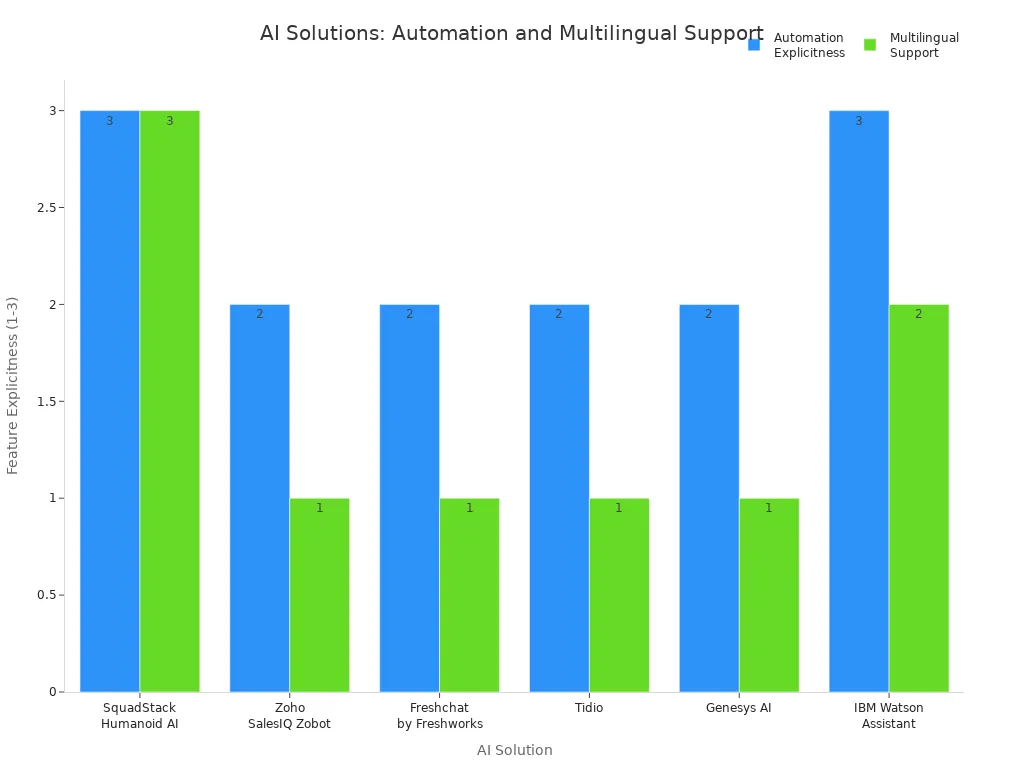
Human Agents in CX
Empathy and Problem Solving
Human agents remain essential in delivering personalised service, especially when customers face complex or emotionally charged situations. While AI can recognize emotions and automate routine tasks, only humans can truly understand subtle cues and respond with genuine empathy. Research shows that 86% of consumers value human connection more than quick responses, and 74% prefer human support for urgent or complicated issues. Agents excel at reading tone, adapting their approach, and offering creative solutions that AI cannot replicate.
- Agents detect emotional cues and provide comfort during moments of frustration or vulnerability.
- They analyze unique situations and think critically to resolve problems that fall outside standard procedures.
- Agents demonstrate adaptability, adjusting their communication style to fit each customer’s needs.
- Companies empower agents with training and access to customer data, enabling them to anticipate needs and deliver proactive support.
Sobot’s unified workspace supports agents by providing real-time insights and context, allowing them to focus on empathy and problem-solving. This synergy between AI and human agents ensures that every customer receives the right balance of efficiency and care.
Note: AI handles routine tasks, but agents bring emotional intelligence and creativity to every interaction, building stronger relationships.
Building Trust
Trust forms the foundation of every successful customer relationship. In AI-augmented environments, customers want assurance that real people remain accountable and in control. Studies reveal that people trust companies more when they know human agents oversee AI systems and can intervene when needed. Transparency about how AI supports agents and clear communication about escalation paths increase customer confidence.
- Customers feel more comfortable when they can escalate issues to a human agent.
- Human oversight reassures customers that ethical standards and accountability are in place.
- Allowing customers to adjust AI outputs or request human intervention increases trust and satisfaction.
Sobot positions AI as a supportive tool, empowering agents to deliver consistent, ethical, and personalised service. By combining advanced technology with human empathy, companies foster loyalty and long-term relationships.
Balancing AI and Human Touch
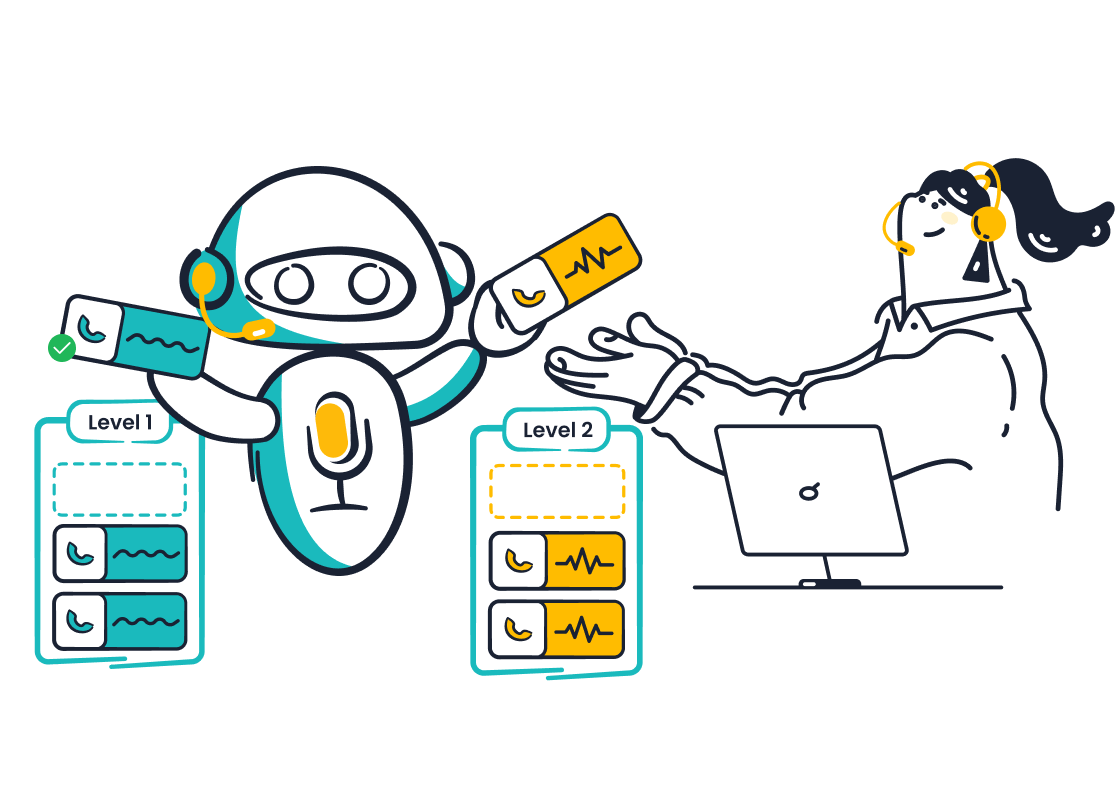
Integration Best Practices
Companies achieve superior customer experience by blending AI agents with skilled human support. Sobot’s approach to AI and human support empowers agents through seamless collaboration. The platform uses AI-powered sentiment analysis to detect emotional cues in customer conversations. When customers express frustration or complex needs, Sobot’s system escalates the interaction to a human agent, preserving empathy and trust.
Best practices for integrating AI in CX include:
- Start with focused pilot projects to minimize disruption and gather feedback.
- Train AI models using real-world data for accurate, relevant responses.
- Monitor key metrics such as customer satisfaction, first contact resolution, and escalation rates.
- Design AI agents to handle routine tasks, while enabling easy handoff to agents for complex issues.
- Continuously upskill agents to work alongside AI, ensuring they can optimize AI tools and maintain a human touch.
- Ensure robust data security and compliance with privacy regulations.
Sobot’s unified workspace supports these practices by providing real-time insights and context, allowing agents to deliver a superior customer experience. This collaboration reduces call times by 25% and increases sales by 15%, as agents focus on relationship-building and problem-solving.
Avoiding Over-Automation
Over-automation can harm customer experience. When AI agents handle too many interactions without human oversight, customers may feel frustrated by robotic or irrelevant responses. Studies show that 64% of consumers report negative experiences when chatbots fail to understand their needs. Customers often abandon sites if they cannot reach a human agent.
To avoid these pitfalls:
- Always provide a clear path for customers to reach human agents.
- Regularly update and monitor AI systems to prevent outdated or inaccurate responses.
- Use AI agents for simple, repetitive tasks, but reserve complex or emotional issues for agents.
- Maintain transparency about automated messages and escalation options.
Sobot’s transparent AI implementation ensures customers never feel trapped in automation. By balancing automation with human empathy, companies maintain high customer satisfaction and operational efficiency, delivering a superior customer experience every time.
Customer Experience Trends 2025
Emotion-Aware AI
Emotion-aware AI is shaping the future of customer experience by recognizing and responding to customer emotions in real time. AI systems now use natural language processing and sentiment analysis to detect feelings such as frustration or satisfaction. Companies like Walmart and Apple have improved customer satisfaction by up to 30% through voice analysis and tone recognition technologies. AI-powered chatbots can escalate complex issues to human agents, increasing loyalty by 30%. Sobot’s Voicebot uses advanced speech recognition to identify emotional cues, ensuring customers receive empathetic and personalized support. This approach reduces complaints and builds stronger relationships, meeting the growing demand for personalization in every interaction.
71% of consumers expect personalized experiences, and emotion-aware AI helps brands deliver on this expectation, reducing frustration and increasing loyalty.
Omnichannel Support
Omnichannel support has become a standard in customer experience. Customers interact with brands across chat, email, voice, and social media. AI agents handle simple tasks autonomously, allowing human agents to focus on complex needs. Sobot’s unified workspace integrates all channels, enabling seamless transitions and consistent service. Cloud-based platforms now combine contact center and unified communications, supporting hybrid work and advanced analytics. Brands that adopt omnichannel AI solutions see higher satisfaction scores and improved operational efficiency. Customers benefit from faster responses and a unified experience, no matter which channel they choose.
- Key benefits of omnichannel support:
- 24/7 availability
- Reduced hold times
- Consistent service across platforms
- Enhanced data-driven insights
Predictive Engagement
Predictive engagement is transforming how brands anticipate customer needs and improve retention. AI analyzes behavior patterns to forecast churn and identify high-value segments. Companies use predictive analytics to deliver timely, personalized outreach, increasing loyalty and repeat business. Teams using customer analytics report a 126% profit improvement, while AI-powered journeys show 33% higher customer lifetime value. Sobot’s AI platform enables proactive engagement, sending relevant notifications and offers at the right moment. This strategy creates emotional connections and maximizes lifetime value, making predictive engagement a key trend for the future of customer experience.
| Metric | Impact on Retention |
|---|---|
| Predictive Analytics | 126% profit boost |
| AI-powered Journeys | 33% higher CLV |
| Early Churn Detection | Reduced loss |
Sobot Solutions for CX Agents
Voicebot Capabilities
Sobot’s Voicebot stands out in the CX market with advanced technology and practical features. The system uses ASR, NLP, LLM, and TTS to deliver natural, human-like conversations. It supports both inbound and outbound calls, handling over half of customer interactions independently. Automated outbound marketing with Voicebot can boost sales by more than 30%. The Voicebot resolves issues on its own and transfers calls to human agents when needed. It also provides intelligent, context-aware, and multilingual support, improving both customer experience and operational efficiency.
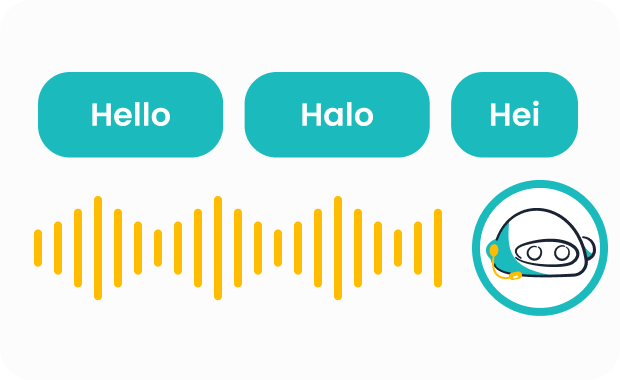
| Capability Aspect | Description |
|---|---|
| Core Technologies | ASR, NLP, LLM, TTS |
| Interaction Types | Inbound and outbound calls |
| Inbound Performance | Handles over 50% of interactions independently |
| Outbound Performance | Increases sales by over 30% through automation |
| Autonomy | Resolves issues and escalates to human agents as needed |
| Advanced Features | Integrates with AI Agent tools and advanced LLMs |
| Support Capabilities | Multilingual, context-aware support |
| Customer Experience Impact | Enhances satisfaction and efficiency |
Sobot’s Voicebot helps every cx agent deliver faster, more accurate service while reducing operational costs.
AI Platform Benefits
Sobot’s AI platform supports cx agents by providing accurate, humanized service and real-time assistance. The platform suggests replies, drafts summaries, and gives administrators detailed dashboards for optimization. Agents report a 15% to 35% increase in direct response rates and up to a 27% improvement in answer accuracy. The platform reduces knowledge base workload by as much as 90%. Multilingual support enables international business without extra effort. AI-powered agents work alongside human staff, not as replacements, making the team more effective. The platform learns from uploaded files, answering questions beyond the existing knowledge base. This approach ensures that ai customer service assistant tools enhance, rather than replace, the human touch.
Industry Use Cases
Retail and e-commerce companies benefit greatly from Sobot’s solutions. AI-powered chatbots provide 24/7 support for product replacements, returns, and order inquiries. These tools personalize recommendations and forecast demand, improving both sales and customer satisfaction. Sobot’s ai live chat agents handle routine questions, freeing human agents to solve complex problems. For example, OPPO used Sobot’s platform to achieve an 83% chatbot resolution rate and a 57% increase in repurchase rate. Sobot’s AI platform manages the entire purchase journey, from pre-sales to post-sales, across all channels. This seamless integration supports scalable, professional service and drives measurable business results.
Action Steps for CX Leaders
Training and Upskilling
CX leaders must prepare their teams for the future by investing in targeted training and upskilling programs. Building cross-functional teams that include CX leads, data scientists, and compliance officers helps oversee AI integration. Companies should audit current systems and identify skill gaps before launching training. Effective programs start with one use case, using historical data and involving domain experts to fine-tune AI. Role-based training, use-case simulations, and ethical guidelines foster cultural adoption. Samsung SDS, for example, achieved 85% internal adoption of its AI assistant through hands-on workshops and AI champions.
Tip: Treat AI as a colleague. Offer continuous education in foundational AI literacy, machine learning, and predictive analytics. Combine technical skills with CX strategies to meet evolving customer expectations.
A successful approach includes:
- Regular feedback loops from agents and customers
- Governance and escalation protocols for quality assurance
- Long-term lifecycle management with periodic reviews
Agents who receive AI-enhanced tools and soft skills training deliver superior customer experiences. Starbucks stands out by blending automation with personalized human interaction, showing the importance of empathy and relationship-building in the future of cx.
Selecting AI Tools
Choosing the right AI tools shapes the future of cx operations. Leaders should focus on platforms that integrate easily with existing CRM and QA software. Customization capabilities, especially low-code or no-code solutions, allow teams to adapt workflows without IT dependency. Embedding brand guidelines and compliance requirements into AI-driven agent guidance ensures consistency.
A table below outlines key criteria for selecting AI tools:
| Criteria | Description |
|---|---|
| Integration | Seamless with CRM, contact center, and knowledge base |
| Customization | Low-code/no-code for easy workflow adaptation |
| Compliance | Supports brand and regulatory standards |
| Machine Learning | Improves agent assistance over time |
| Reporting | Simple dashboards for performance monitoring |
| Human Handover | Smooth escalation to live agents |
| Vendor Support | Responsive onboarding and ongoing guidance |
Sobot’s AI platform and Voicebot meet these criteria, offering plug-and-play integration, multilingual support, and intuitive dashboards. These features empower CX teams to personalize interactions and maintain the human touch, positioning AI as a support tool rather than a replacement.
Measuring Success
Measuring the success of AI-powered cx initiatives requires a holistic approach. Leaders should track customer satisfaction (CSAT), Net Promoter Score (NPS), and resolution time to assess improvements. Cost reduction and return on investment (ROI) provide insight into financial benefits. Personalization effectiveness shows how well AI tailors experiences.
Recommended metrics include:
- AI Resolution Rate: Percentage of inquiries resolved by AI
- Transfer Rate: Frequency of escalation to human agents
- AI Adoption Rate: Proportion of customers engaging with AI
- First Contact Resolution (FCR): Efficiency of issue resolution
- Employee Satisfaction: Workforce empowerment and training effectiveness
- Omnichannel Consistency: Seamless interactions across channels
- Data Privacy Compliance: Responsible AI use
Note: Establish baseline metrics before AI deployment. Segment AI versus human performance and monitor for errors. Continuous refinement ensures AI strategies align with business goals and customer needs.
Sobot’s dashboards and analytics help CX leaders monitor these metrics in real time, supporting ongoing optimization and future growth. Companies that measure both operational and customer outcomes position themselves for long-term success in the evolving cx landscape.
Sobot’s AI-powered solutions lead the transformation of the customer experience by automating routine tasks and empowering agents to focus on empathy and problem-solving. CX leaders should blend technology with human skills, ensuring every interaction feels personal. To adopt AI tools like Sobot Voicebot, leaders can automate repetitive queries, provide 24/7 support, and use real-time insights for personalized service. This approach prepares teams for the future, where seamless collaboration between AI and people defines customer experience excellence.
FAQ
What is the main benefit of using AI for CX agents in 2025?
AI helps CX agents handle routine tasks quickly. Sobot’s Voicebot automates over 90% of customer interactions. This allows agents to focus on complex issues. Companies see a 35% drop in response times and higher customer satisfaction (source).
How does Sobot’s Voicebot improve customer experience?
Sobot’s Voicebot uses advanced speech recognition and multilingual support. It provides 24/7 service and seamless handoff to human agents. Customers get faster answers, and businesses report up to an 80% reduction in cost-per-contact.
Can AI-powered CX agents personalize customer interactions?
Yes. AI analyzes customer data to deliver personalized support. Sobot’s AI platform recommends products and answers based on each customer’s history. This approach increases satisfaction and boosts repeat purchases, as seen with OPPO’s 57% rise in repurchase rate.
What skills do CX agents need in an AI-powered contact center?
CX agents need strong communication, empathy, and technical skills. They supervise AI tools, solve complex problems, and ensure a human touch. Sobot’s unified workspace helps agents access real-time insights and respond quickly.
How can companies measure the success of AI in customer experience?
Companies track metrics like AI resolution rate, customer satisfaction (CSAT), and Net Promoter Score (NPS). Sobot’s dashboards provide real-time analytics. Leaders use these insights to improve CX agent performance and optimize AI strategies.
Tip: Regularly review these metrics to keep customer experience at its best.
See Also
How AI Agents Are Transforming Customer Support Services
A Comprehensive Guide To IT Call Center Agent Duties
An In-Depth Look At AI Solutions For Enterprise Call Centers
